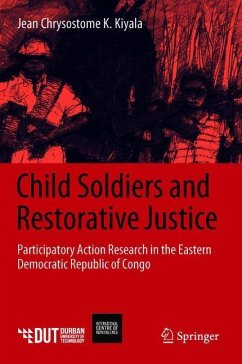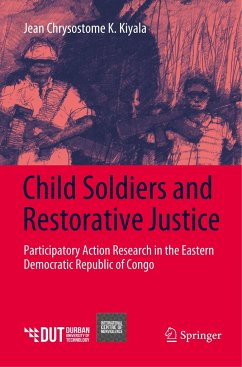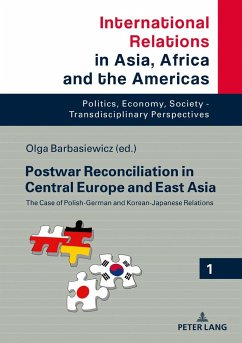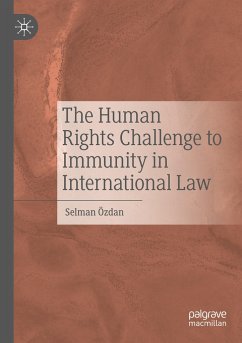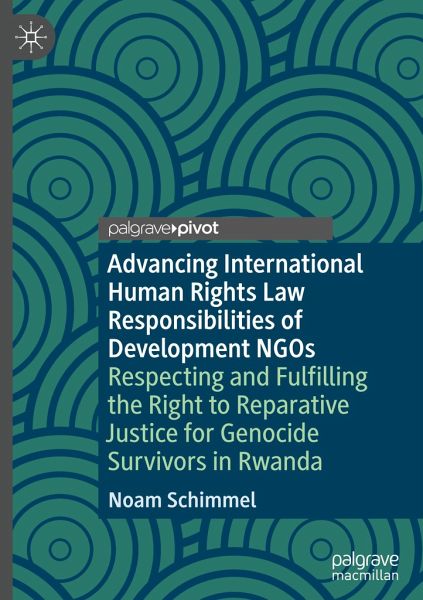
Advancing International Human Rights Law Responsibilities of Development NGOs
Respecting and Fulfilling the Right to Reparative Justice for Genocide Survivors in Rwanda

PAYBACK Punkte
23 °P sammeln!
This book explores the potential responsibilities to respect, protect and fulfill international human rights law (IHRL) of a particular class of non-state actors: non-governmental organizations (NGOs). It calls for NGOs pursuing development to respect and fulfill the human right of genocide survivors to reparative justice in Rwanda. It argues that NGOs have social and moral responsibilities to respect and fulfill IHRL, and for greater accountability for them to do so. The book focuses on those NGOs advancing development in a post genocide transitional justice context acting simultaneously in p...
This book explores the potential responsibilities to respect, protect and fulfill international human rights law (IHRL) of a particular class of non-state actors: non-governmental organizations (NGOs). It calls for NGOs pursuing development to respect and fulfill the human right of genocide survivors to reparative justice in Rwanda. It argues that NGOs have social and moral responsibilities to respect and fulfill IHRL, and for greater accountability for them to do so. The book focuses on those NGOs advancing development in a post genocide transitional justice context acting simultaneously in partnership with state governments, as proxies and agents for these governments, and providing essential public goods and social services as part of their development remit. It defines development as a process of expanding realization of social, economic, and cultural rights addressing food security, economic empowerment/poverty reduction, healthcare, housing, education, and other fundamental human needs while integrating these alongside the expansion of freedoms and protections afforded by civil and political rights. It uses post genocide Rwanda as a case study to illustrate how respect and fulfillment of the IHRL pertaining to reparative justice are hindered by failing to hold NGOs responsible for IHRL. Consequently, this results in discrimination against, marginalization, and the disadvantaging of survivors of the Rwandan genocide against the Tutsi and violations of their human rights.



